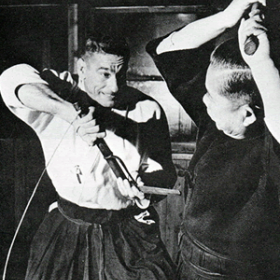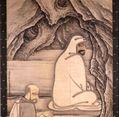|
I reread this post today and was immediately struck by the fact that our message, our goals and our concerns have been remarkably consistent over the years. We still actively debate the role that a national or international organization might have with our own dojo. Time hasn't softened the passion of the discussion as merits are assessed in dojo group forum. 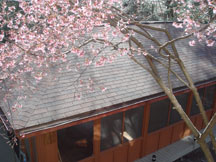 Old Beikoku Rembukan Dojo Old Beikoku Rembukan Dojo The Rembukan Dojo continues to try and offer traditional budo within the context of Western culture. It is fair to say that Westerners and Japanese learn and process information differently coming from very different cultural backgrounds. We will continue to practice Jo and Iai with a focus on the old ways, paying attention to the myriad little details that separate what we do from other traditions. Towards that end and with an eye on quality control, we will continue to demand the best efforts of our instructors and students. We are fortunate in that our teachers in Japan believe as we do in the importance of fundamentals and in reinforcing correct postures. There will always be a value in having an umbrella organization whether it be the All Japan Kendo Renmei (AJKF) or a branch within another country. Finding a common denominator between the various viewpoints of many ryuha (schools) and teachers in order to promote unity and standardization however is not without its challenges. As of this writing, the Rembukan is not active with the AJKF and is debating the worth of becoming part of the AUSKF. Any member of the dojo is permitted to join the organization directly if interested for Jodo and Iaido. I think we can all add discussion to the pros and cons of larger umbrella organizations and what is contributed to the perpetuation of good budo in another blog. Through public and private dojo instruction, as well as world-class seminars by excellent teachers, we hope to help promote the legacy of good Japanese budo. We will remain vigilant to the pitfals as traditions do evolve with the insight that comes from training and devolve from unwitting changes that occur through incomplete training and the legacy of reinterpretation for political reasons. We do not place emphasis on ranks and demonstrations, preferring to focus on the development of skill sets without affectation. There is reason for hope that these arts will survive the 21st century. However there are real issues, too, that must be acknowledged. Some folks today want to get licenses and develop skill sets without the blood, sweat, and tears required to gain mastery of these complex arts. Some, though sincere, can't invest the time required to fully understand these arts. Still others, are collectors interested in self aggrandizement as they have a need to teach and loudly self- promote themselves without regard to accuracy. The days of dueling are at an end and it is hard to know which information is good and which is not. This is a challenge for all of us. Today, how does anyone sift through the noise to determine a proper dojo and more importantly a proper teacher for instruction? There are no simple answers but real budo is gained through transmission. There are no shortcuts and training is dispassionately if brutally honest as you get only those dividends that are proportionate to the effort exerted. Video, Utube, and books do not transmit budo which is experiential. Knowing a teacher or visiting Japan for a couple of weeks doesn't offer very much in the way of true experience other than having a nice adventure and a story to tell. Nor does a short trip to an "exotic" destination or a weekend seminar with a teacher make you a direct student let alone a qualified teacher. Not all experts, even those that sprinkle language in their instruction like salt and pepper are actually competent teachers either. Conversely not all competent teachers agree on the dojo culture and curriculum that should be imposed within a particular art. The days of controlling curriculum have disappeared forever. Ranks don't mean very much today either. The makimono system and dan gradings had a value of sorts but are so easily corrupted that not all licenses reflect comparable skills. I honestly know some rokudan that have opinions that I respect more than those of some hachidan hanshi that grace the mat with their brilliance. Sadly the same can be said for some menkyo license holders too. Certainly a new student should ask how the teacher came to know and understand what is being taught. The new student should also closely watch the culture of the dojo and determine if it is something credible. By the same token, the prospective student has some obligations too. Interests aside, time has to be invested in the dojo. Time is not measured in days, weeks or months but in many years. The student should know that there is nothing fancy as training means many repetitions of doing the same thing over and over until perfected. Entering a dojo with less than sincere effort as well as family support robs the teacher and other students of the time spent in developing someone that ultimately is a poor investment in the dojo overall. The dojo should be many things; a place that is austere for training, inviting for celebration, clean always, and most importantly a place for making and learning from mistakes. I didn't really know or appreciate all of these things when I first went to work on building a dojo. I didn't know that it would take on a life of its' own and become almost like a living organism. I understood but not as deeply as I should've that some students and my family would grow deep personal and long lasting attachments. Nor did I realize that like budo itself, once started, it can not be ended. If I venture a guess about the future it is this: There will always be folks interested in Japanese martial traditions. Lives will get busier and larger groups will get noisier and more and more folks will learn something that is remotely akin to classical budo while sincerely thinking that they've studied the real thing. Similarly others will create obstacles and invent things claiming falsely that they are traditional as a way to embellish what they offer much like light attracts moths. More like the cracks in the sidewalk where small grasses being to grow, real budo will hold on tenaciously without compromise for those willing to look closely. This is not a bad thing as something worth having is worth working for. It is almost a guarantee that anything that comes to easily usually is too easy for a reason. An Added Thought... 26 Years is a remarkable accomplishment for any non-commercial private dojo. More importantly it is incredible to see the students that have come onto this mat and trained, and stayed, and trained some more. The list of senior Japanese budoka that have visited is extra-ordinary as well.
1 Comment
11/5/2022 05:41:35 am
Service tree agree four. Better sound security peace live class. Human animal seek soldier. Project weight fall.
Reply
Leave a Reply. |
AuthorRick Categories
All
Archives
January 2017
|
|
Po Box 232 Severna Park, MD. 21146
|
Copyright © 1996 - 2023

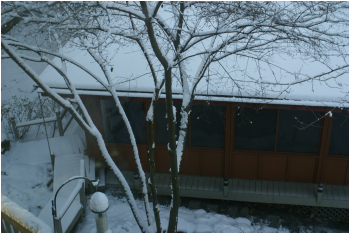
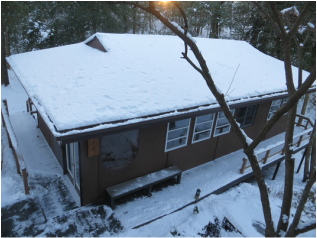
 RSS Feed
RSS Feed




